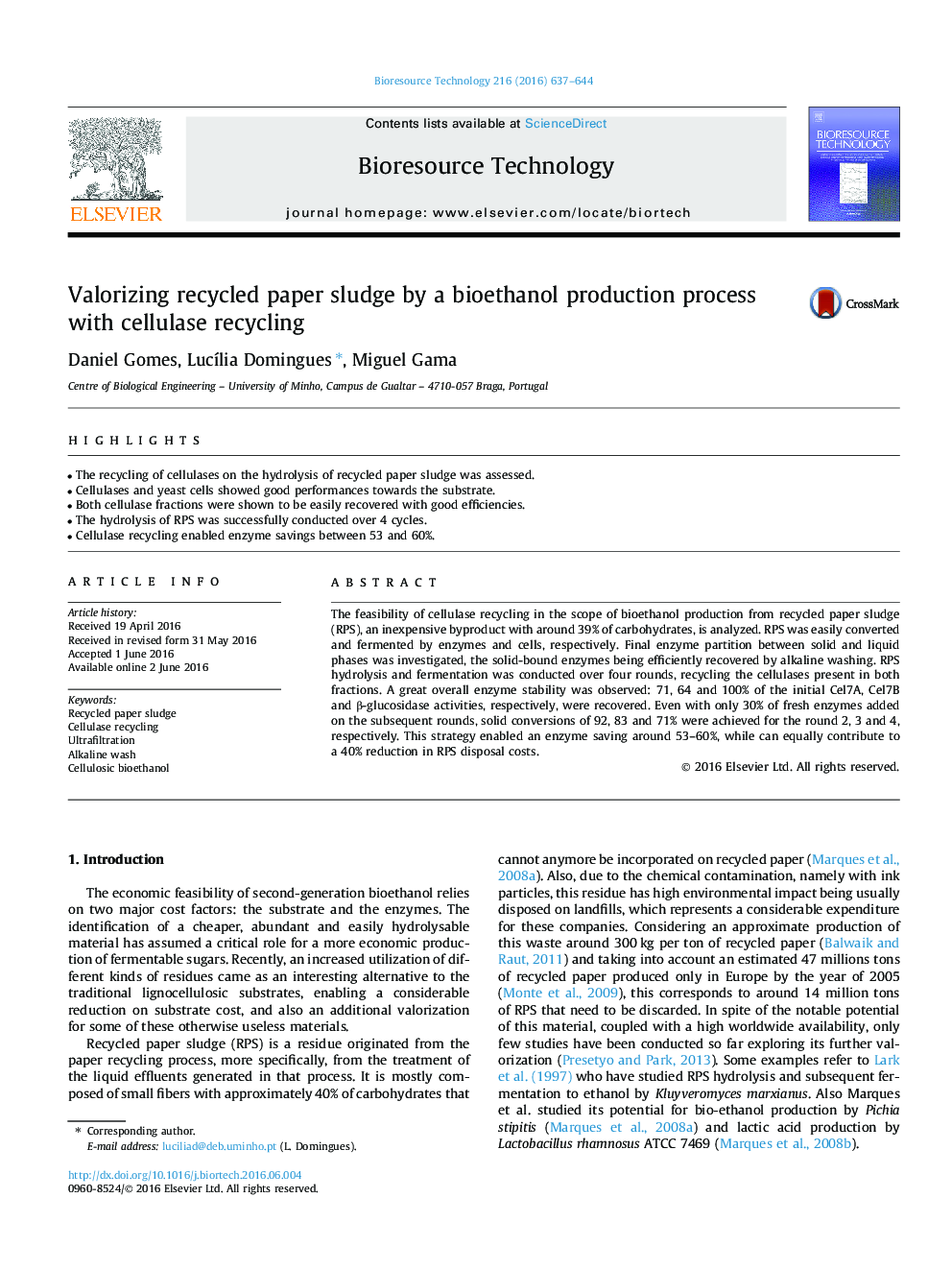| Article ID | Journal | Published Year | Pages | File Type |
|---|---|---|---|---|
| 7070999 | Bioresource Technology | 2016 | 8 Pages |
Abstract
The feasibility of cellulase recycling in the scope of bioethanol production from recycled paper sludge (RPS), an inexpensive byproduct with around 39% of carbohydrates, is analyzed. RPS was easily converted and fermented by enzymes and cells, respectively. Final enzyme partition between solid and liquid phases was investigated, the solid-bound enzymes being efficiently recovered by alkaline washing. RPS hydrolysis and fermentation was conducted over four rounds, recycling the cellulases present in both fractions. A great overall enzyme stability was observed: 71, 64 and 100% of the initial Cel7A, Cel7B and β-glucosidase activities, respectively, were recovered. Even with only 30% of fresh enzymes added on the subsequent rounds, solid conversions of 92, 83 and 71% were achieved for the round 2, 3 and 4, respectively. This strategy enabled an enzyme saving around 53-60%, while can equally contribute to a 40% reduction in RPS disposal costs.
Related Topics
Physical Sciences and Engineering
Chemical Engineering
Process Chemistry and Technology
Authors
Daniel Gomes, LucÃlia Domingues, Miguel Gama,
